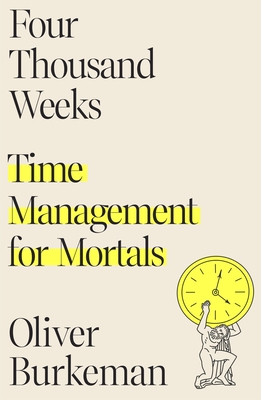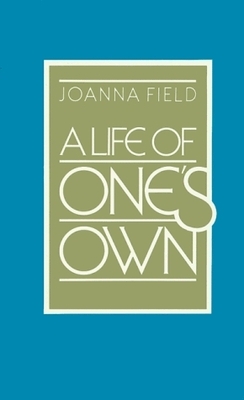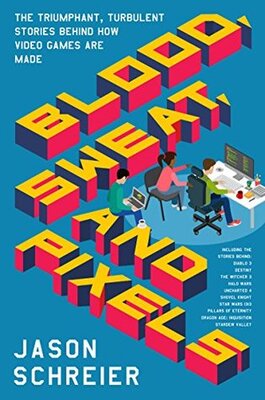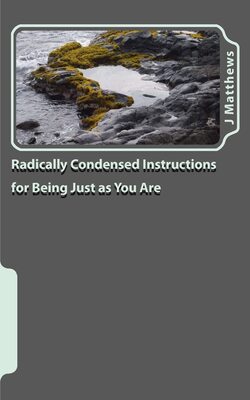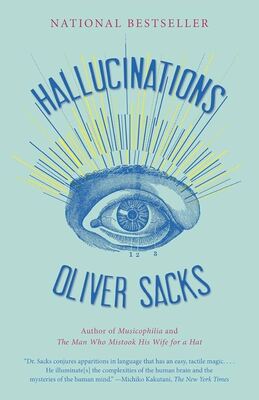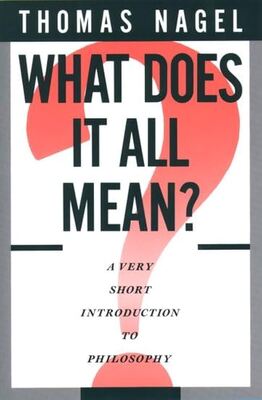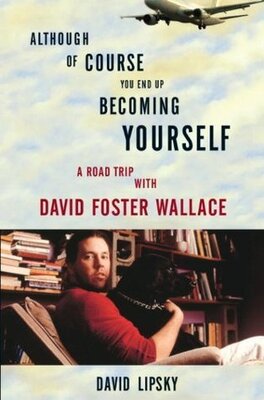
Life seems to strobe on and off for me, and to barrage me with input. And that so much of my job is to impose some sort of order, or make some sort of sense of it.
Because I’d like to be the sort of person who can enjoy things at the time, instead of having to go back in my head and enjoy them then.
My life and my self doesn’t feel like anything like a unified developed character in a linear narrative to me. I may be mentally ill, maybe you’re not. But my guess is, looking at things like MTV videos or new fashions in ads, with more and more flash cuts, or the use of computer metaphors which would only be useful metaphors if the ability to do triage and tree-diagrams resonated with people’s own existence in life. That I think a lot of people feel—not overwhelmed by the amount of stuff they have to do. But overwhelmed by the number of choices they have, and by the number of discrete, different things that come at them. And the number of small … that since they’re part of numerous systems, the number of small insistent tugs on them, from a number of different systems and directions. Whether that’s qualitatively different than the way life was for let’s say our parents or our grandparents, I’m not sure. But I sorta think so. At least in some—in terms of the way it feels on your nerve endings.
We’re absolutely dying to give ourselves away to something. To run, to escape, somehow. And there’s some kinds of escape—in a sort of Flannery O’Connorish way—that end up, in a twist, making you confront yourself even more. And then there are other kinds that say, “Give me seven dollars, and in return I will make you forget your name is David Wallace, that you have a pimple on your cheek, and that your gas bill is due.” And that that’s fine, in low doses. But that there’s something about the machinery of our relationship to it that makes low doses—we don’t stop at low doses.
And I think I’ve, my whole life, had a real penchant for avoiding the hard and doin’ the easy. And then part of, you know, part of why we’re here is to kinda learn how to not do that so much. That it’s ultimately less painful not to do that.
I mean even—we were making jokes about Love Boat and Baywatch. These really—the really commercial, really reductive shows that we so love to sneer at. Are also tremendously compelling. Because the predictability in popular art, the really formulaic stuff, the stuff that makes no attempt to surprise or do anything artistic, is so profoundly soothing. And it even, even the densest or most tired viewer can see what’s coming. And it gives you a sense of order, that everything’s going to be all right, that this is a narrative that will take care of you, and won’t in any way challenge you. It’s like being wrapped in a chamois blanket and nestled against a big, generous tit, you know?
But the only other thing that seemed to be pulling me was the really sort of intense theoretical interest in fiction. Which then also seemed empty. Metafiction. And postmodernism. And what came after metafiction—like what would meta-metafiction be like? And what were ways to co-opt pop culture? And it’s very hard to explain. I think probably the not very sophisticated diagnosis is that I was just depressed.
Because I mean, I don’t think we ever change. I mean I’m sure there are still those same parts of me. I’ve just got to find a way to not let them drive.
And I think that the ultimate way you and I get lucky is if you have some success early in life, you get to find out early it doesn’t mean anything. Which means you get to start early the work of figuring out what does mean something.
I believe that if I can’t impress people by how much I’ve accomplished, I can maybe be impressive with how practical my ambitions are, how little I expect.
I’m not biochemically depressed. But I feel like I got to dip my toe in that wading pool and, um, not going back there is more important to me than anything. It’s like worse than anything—I don’t know if you’ve had any experience with this. It’s worse than any kind of physical injury, or any kind of—it may be what in the old days was called a spiritual crisis or whatever. It’s just feeling as though the entire, every axiom of your life turned out to be false, and there was actually nothing, and you were nothing, and it was all a delusion. And that you were better than everyone else because you saw that it was a delusion, and yet you were worse because you couldn’t function. And it was just, it was just horrible.
Well, I think being shy basically means being self-absorbed to the extent that it makes it difficult to be around other people. For instance, if I’m hanging out with you, I can’t even tell whether I like you or not, because I’m too worried about whether you like me.
Most bright people, something happens in your late twenties, where you realize that this other, that how other people regard you does not have enough calories in it, to keep you from blowing your brains out. That you’ve got to find, make some other détente.
I’m not even going to start on the idea of eating a hamburger at 7:00 in the morning. The idea is you eat eggs, which are kind of a latent form, as your body itself is awakening. It makes a lot of sense.
I think one of the insidious lessons about TV is the meta-lesson that you’re dumb. This is all you can do. This is easy, and you’re the sort of person who really just wants to sit in a chair and have it easy. When in fact there are parts of us, in a way, that are a lot more ambitious than that.
There’s somethin’ really vital about food that candy’s missing, although to make up for what it’s missing, the pleasure of masticating and swallowing goes way up. There seems to me to be some analogy to what—I’m talking about very seductive commercial entertainment. There’s nothing sinister, the thing that’s sinister about it is that the pleasure that it gives you to make up for what it’s missing is a kind of … addictive, self-consuming pleasure. And what saves us is that most entertainment isn’t very good.
I think one of the reasons that I feel empty after watching a lot of TV, and one of the things that makes TV seductive, is that it gives the illusion of relationships with people. It’s a way to have people in the room talking and being entertaining, but it doesn’t require anything of me. I mean, I can see them, they can’t see me. And, and, they’re there for me, and I can, I can receive from the TV, I can receive entertainment and stimulation. Without having to give anything back but the most tangential kind of attention. And that is very seductive.
I’m willing to derive enormous amounts of my sense of community and awareness of other people, from television? But I’m not willing to undergo the stress and awkwardness and potential shit of dealing with real people. And that as the Internet grows, and as our ability to be linked up, like—I mean, you and I coulda done this through e-mail, and I never woulda had to meet you, and that woulda been easier for me. Right? Like, at a certain point, we’re gonna have to build some machinery, inside our guts, to help us deal with this. Because the technology is just gonna get better and better and better and better. And it’s gonna get easier and easier, and more and more convenient, and more and more pleasurable, to be alone with images on a screen, given to us by people who do not love us but want our money. Which is all right. In low doses, right? But if that’s the basic main staple of your diet, you’re gonna die. In a meaningful way, you’re going to die.
Because this idea that the Internet’s gonna become incredibly democratic? I mean, if you’ve spent any time on the Web, you know that it’s not gonna be, because that’s completely overwhelming. There are four trillion bits coming at you, 99 percent of them are shit, and it’s too much work to do triage to decide. So it’s very clearly, very soon there’s gonna be an economic niche opening up for gatekeepers. You know? Or, what do you call them, Wells, or various nexes. Not just of interest but of quality. And then things get real interesting. And we will beg for those things to be there. Because otherwise we’re gonna spend 95 percent of our time body-surfing through shit that every joker in his basement—who’s not a pro, like you were talking about last night. I tell you, there’s no single more interesting time to be alive on the planet Earth than in the next twenty years. It’s gonna be—you’re gonna get to watch all of human history played out again real quickly.
One of the things about being a writer is you’re able to give the impression—both in the lines and between the lines—that you know an enormous amount. That you know and have lived intimately all this stuff. Because you want it to have that kind of effect on the nerve endings. And it’s like—it’s something that I’m fairly good at. Is I think I can seem, I think I can seem like I know a whole lot about stuff that in fact pretty much everything that I know is right there. It’s a very tactical research-type thing.
I don’t think writers are any smarter than other people. I think they may be more compelling in their stupidity, or in their confusion.
I doubt I’m all that different from other like you know, seriously overeducated, intellectual kids. I really had this—I think I really had a very difficult time believing that anybody else, um, was at all like me. Or was anywhere as smart as me.
